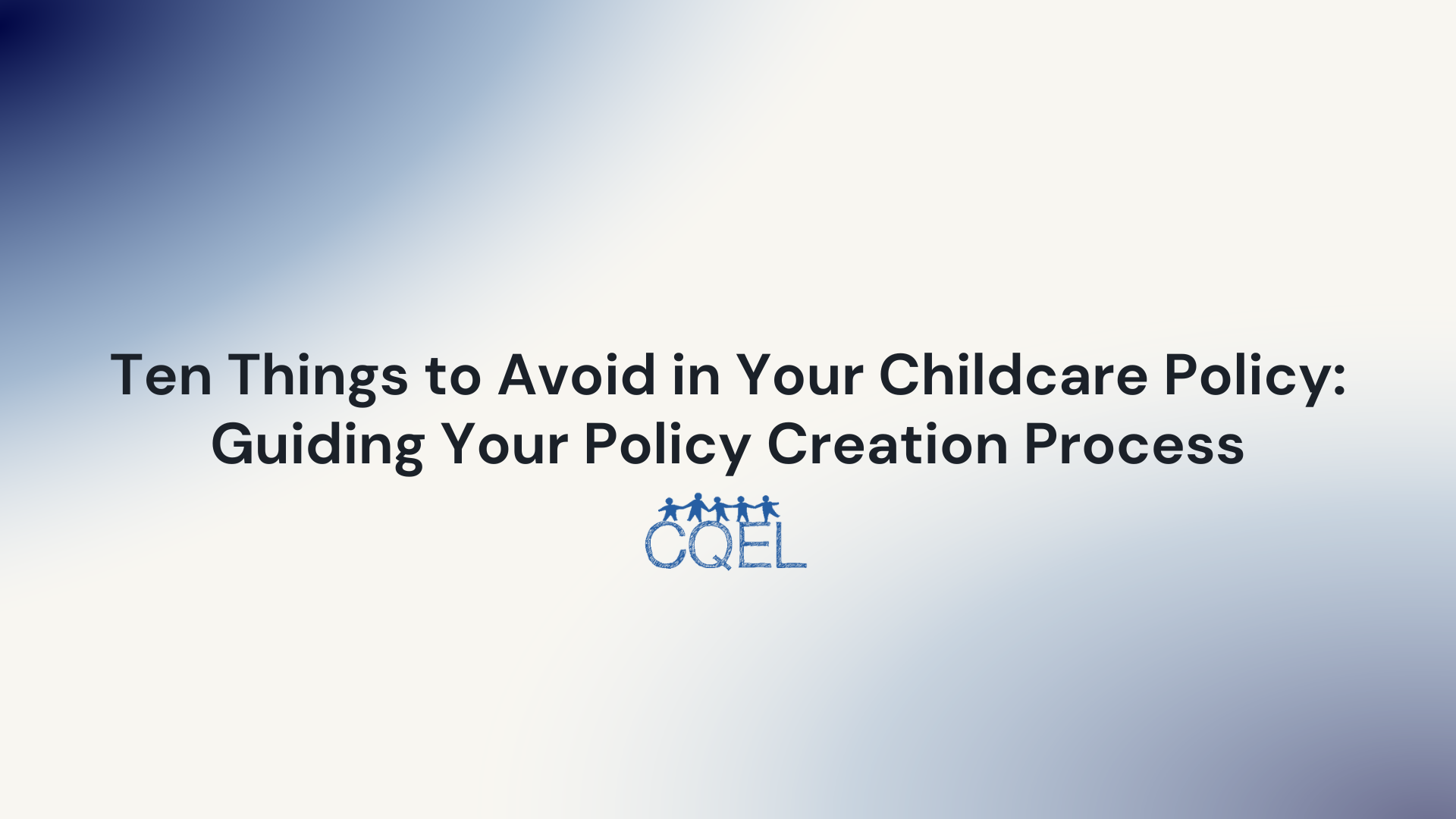Ten Things to Avoid in Your Childcare Policy: Guiding Your Policy Creation Process
The Do's and Don'ts of Policy Writing: Crafting effective policies for a childcare center is as much about knowing what to exclude as it is about deciding what to include.

The Do's and Don'ts of Policy Writing: Crafting effective policies for a childcare center is as much about knowing what to exclude as it is about deciding what to include. With careful consideration, your policies can set clear expectations for staff and parents alike without causing unnecessary confusion or contention. This post outlines ten elements you should avoid when drafting your childcare policies.
1. Discrimination of Any Kind
Policies should promote inclusivity and equality. For instance, avoid statements like "Children with disabilities may not participate in all activities," which could violate laws related to discrimination.
2. Unclear Terms and Conditions
Your policy must not be open to interpretation. Instead of saying "snacks will be provided regularly," consider specifying when and what kind of snacks will be provided to eliminate confusion.
3. Excessively Restrictive Rules
While policies set guidelines, they shouldn't impede daily operations. A rule such as "No outside toys allowed," may be overly restrictive, and instead, could be framed as "Children may bring a comfort toy for naptime."
4. Sensitive or Confidential Information
Never include specific details about children, parents, or staff members. For instance, avoid mentioning "Mrs. Smith's late payments" even if it's used as an example for your late payment policy.
5. Unenforceable Guidelines
If you write "All children must be potty trained," but cannot enforce this rule for younger children or those with specific needs, it's best to leave it out.
6. Legally Inappropriate Content
Policies must comply with all relevant laws. For instance, saying "We administer medication without prescriptions if we deem necessary" contradicts medical laws and should be avoided.
7. Irrelevant Information
If you're writing a policy on parent participation, avoid veering into staff recruitment requirements. Stick to the specific topic to avoid confusion.
8. Outdated or Unreviewed Content
Remove statements that no longer align with current practices or laws. For instance, if you have changed your immunization requirements, update this in your policy immediately.
9. Inflexible Guidelines
Your policy should allow for exceptions in special cases. Instead of a hard rule like "No parents in the classroom at any time," consider "Parents are typically not in the classroom during activity time, but exceptions can be made for special circumstances."
10. Disrespectful Language
Always maintain a respectful and professional tone. For instance, instead of saying "We will not tolerate picky eaters," consider a more empathetic approach like, "We work together with families to accommodate children's diverse dietary needs."
Navigating the Policy Writing Process with Care
Understanding what not to include in your childcare policies is just as crucial as knowing what to include. By avoiding these ten items, your policies will be more effective, respectful, and law-abiding, better serving your staff, children, and their families. Ultimately, a thoughtful and well-crafted policy is a key stepping stone towards the success of your childcare center.
